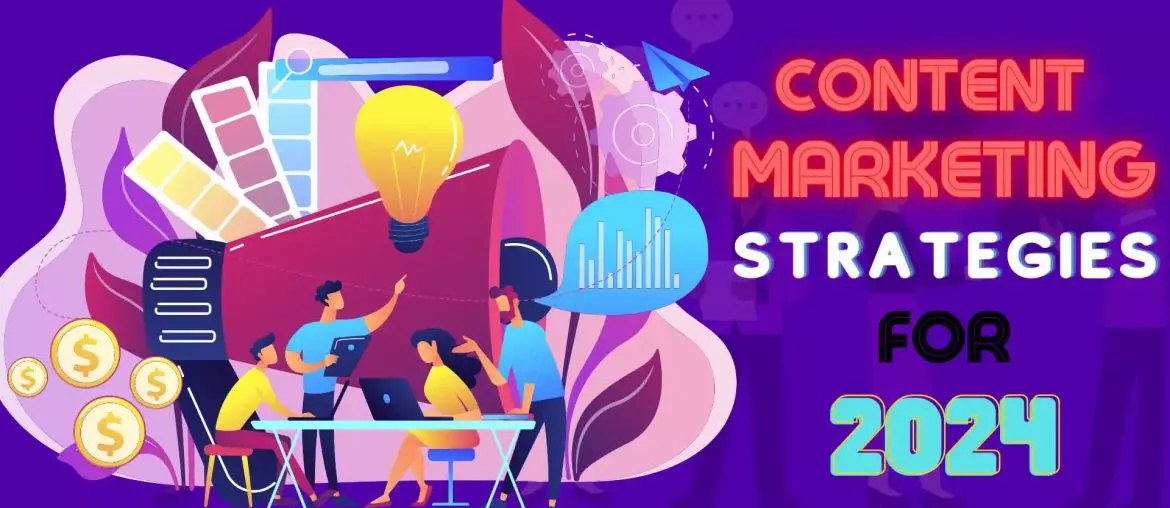Content marketing is a crucial component of any successful marketing strategy. As we approach 2025, it’s important to stay up-to-date with the latest trends and strategies to ensure that your content marketing efforts are effective and engaging. In this article, we’ll explore the top content marketing strategies that businesses should consider implementing in 2025.
Understanding the Basics of Content Marketing is the first step to creating a successful content marketing strategy. This involves identifying your target audience, creating high-quality content that resonates with them, and promoting that content through various channels. From there, businesses can begin to develop a more robust content marketing strategy that leverages SEO, social media, and other tactics to reach a wider audience.
One of the most exciting trends in content marketing is the rise of video content. Video content is incredibly engaging and has been shown to increase conversions and drive sales. By exploring video content marketing, businesses can create more engaging content that resonates with their target audience. Additionally, measuring the success of your content marketing efforts is crucial to ensuring that you’re on the right track. By tracking metrics like engagement, traffic, and conversions, you can refine your strategy and improve your results over time.
Key Takeaways
- Understanding your target audience is crucial for creating effective content marketing strategies.
- Video content marketing is an increasingly important trend that businesses should explore.
- Measuring the success of your content marketing efforts is crucial to refining your strategy and improving your results.
Understanding the Basics of Content Marketing
Content marketing is a strategic approach to creating and distributing valuable, relevant, and consistent content to attract and retain a clearly defined audience — and, ultimately, to drive profitable customer action. It is a form of inbound marketing that focuses on creating and sharing valuable content that attracts and converts prospects into customers, and customers into repeat buyers.
Importance of Content Marketing
Content marketing is important for businesses of all sizes because it helps build brand awareness, establish thought leadership, and drive traffic and leads. By creating and sharing valuable content, businesses can position themselves as experts in their industry and build trust with their target audience. This, in turn, can lead to increased brand recognition, customer loyalty, and sales.
In addition to building brand awareness and establishing thought leadership, content marketing can also help businesses improve their search engine rankings. By creating high-quality content that is optimized for search engines, businesses can attract more traffic to their website and improve their visibility in search results.
Role of Content Marketing in Business Growth
Content marketing plays a critical role in business growth by helping businesses attract and retain customers. By creating and sharing valuable content, businesses can educate their target audience, build trust, and establish themselves as experts in their industry. This, in turn, can lead to increased brand recognition, customer loyalty, and sales.
In addition to attracting and retaining customers, content marketing can also help businesses reduce their marketing costs. By creating high-quality content that is shared on social media and other digital channels, businesses can reach a wider audience without having to spend a lot of money on advertising.
Overall, content marketing is a powerful tool for businesses that want to grow and succeed in today’s digital world. By creating and sharing valuable content, businesses can establish themselves as thought leaders in their industry, build trust with their target audience, and drive profitable customer action.
Creating a Robust Content Marketing Strategy
To create a robust content marketing strategy, businesses need to follow a few key steps. These steps include identifying the target audience, setting clear objectives, and creating and distributing content.
Identifying Target Audience
The first step in creating a content marketing strategy is identifying the target audience. This involves understanding the demographics, interests, and pain points of the audience. By understanding the target audience, businesses can create content that resonates with them and meets their needs.
One way to identify the target audience is by conducting market research. This can involve surveys, focus groups, and analyzing social media data. By gathering this information, businesses can create buyer personas that represent their ideal customer.
Setting Clear Objectives
Once the target audience has been identified, the next step is to set clear objectives. These objectives should be specific, measurable, achievable, relevant, and time-bound (SMART). For example, a business might set an objective to increase website traffic by 20% within the next six months.
To achieve these objectives, businesses need to create a content calendar that outlines the topics, formats, and distribution channels for their content. This calendar should be flexible enough to accommodate changes in the market or business goals.
Content Creation and Distribution
The final step in creating a content marketing strategy is creating and distributing content. This involves creating high-quality content that resonates with the target audience and meets their needs. This content should be distributed across multiple channels, including social media, email, and the company website.
To create effective content, businesses should focus on creating content that is informative, engaging, and relevant to the target audience. This can include blog posts, infographics, videos, and podcasts. By creating a variety of content formats, businesses can reach a wider audience and keep them engaged.
In conclusion, creating a robust content marketing strategy requires businesses to identify their target audience, set clear objectives, and create and distribute high-quality content. By following these steps, businesses can create a content marketing strategy that drives traffic, generates leads, and increases sales.
Leveraging SEO for Content Marketing
To create an effective content marketing strategy, it is important to leverage SEO techniques. By optimizing content for search engines, businesses can increase their visibility and attract more traffic to their website. Here are some key SEO strategies to consider when creating a content marketing plan.
Keyword Research
Keyword research is the foundation of any successful content marketing campaign. By identifying the keywords and phrases that your target audience is searching for, you can create content that is relevant and valuable to them. Use tools like Google Keyword Planner, SEMrush, or Ahrefs to find keywords with high search volume and low competition.
On-Page SEO Techniques
On-page SEO refers to the optimization of individual web pages to rank higher and earn more relevant traffic in search engines. It includes optimizing content, headlines, meta descriptions, and images. Here are some on-page SEO techniques to consider:
- Use descriptive and keyword-rich meta descriptions
- Optimize images with descriptive file names and alt tags
- Use header tags (H1, H2, H3) to structure content
- Include internal and external links to relevant content
Link Building Strategies
Link building is the process of acquiring hyperlinks from other websites to your own. It is an important factor in SEO and can help improve your website’s authority and visibility. Here are some link building strategies to consider:
- Guest blogging on relevant websites
- Creating shareable content that others will want to link to
- Participating in industry forums and online communities
- Building relationships with influencers and other industry leaders
By leveraging these SEO strategies, businesses can create a content marketing plan that is both effective and sustainable. By providing valuable content that is optimized for search engines, businesses can attract more traffic, generate leads, and ultimately increase revenue.
Utilizing Social Media for Content Promotion
Social media is a powerful tool for content promotion, and it’s only going to become more important in 2025. By utilizing social media platforms, businesses can reach a wider audience and increase engagement with their content. However, not all social media platforms are created equal, and it’s important to choose the right ones for your business.
Choosing the Right Platforms
Different social media platforms have different demographics and purposes, so it’s important to choose the ones that align with your target audience and content goals. For example, Instagram is great for visual content and has a younger audience, while LinkedIn is more professional and geared towards B2B content.
It’s also important to consider the type of content you’ll be promoting. If you’re creating long-form blog posts, Twitter may not be the best platform for promotion, as it limits character count. On the other hand, if you’re creating short-form videos, TikTok may be a great option.
Creating Engaging Social Media Content
Once you’ve chosen the right platforms, it’s important to create engaging content that will capture your audience’s attention. This can include a variety of content types, such as images, videos, infographics, and more.
When creating social media content, it’s important to keep your brand voice and messaging consistent across all platforms. This will help build brand recognition and trust with your audience. Additionally, using eye-catching visuals and attention-grabbing headlines can help increase engagement with your content.
In conclusion, social media is a powerful tool for content promotion in 2025. By choosing the right platforms and creating engaging content, businesses can reach a wider audience and increase engagement with their content.
Exploring Video Content Marketing
Video content marketing is predicted to dominate content marketing strategies in 2025. In fact, according to the Digital Marketing Institute, more than half of marketers say video is the most valuable type of content. Let’s explore the benefits of video content marketing and some tips for creating compelling video content.
Benefits of Video Content
Video content marketing offers numerous benefits for businesses. Here are some of the most significant benefits:
- Increased Engagement: Video content is more engaging than text or image-based content. It captures the viewer’s attention and keeps them engaged for longer periods.
- Improved SEO Ranking: Including video on your website can improve your SEO ranking. Google prioritizes websites with video content, which can help you appear higher in search results.
- Increased Brand Awareness: Video content is an excellent way to increase brand awareness. It can help you reach a broader audience and build trust with your customers.
- Improved Conversion Rates: Video content can help improve your conversion rates. Including a video on your product page can increase the likelihood of a purchase.
Creating Compelling Video Content
Creating compelling video content is essential for a successful video content marketing strategy. Here are some tips for creating compelling video content:
- Know Your Audience: Understanding your audience is critical to creating compelling video content. You should tailor your videos to your target audience’s interests and preferences.
- Keep it Short and Sweet: Short videos are more likely to be watched in their entirety. Keep your videos under two minutes to increase engagement.
- Tell a Story: Storytelling is a powerful tool in video content marketing. Use storytelling to create an emotional connection with your audience and keep them engaged.
- Include a Call-to-Action: Including a call-to-action in your video can help improve your conversion rates. Encourage your viewers to take action, such as visiting your website or making a purchase.
In conclusion, video content marketing is predicted to be a dominant force in 2025. By understanding the benefits of video content and following these tips for creating compelling video content, businesses can improve their engagement, SEO ranking, brand awareness, and conversion rates.
Measuring Content Marketing Success
Content marketing is a long-term strategy that requires constant monitoring and evaluation to ensure that it is delivering the desired results. Measuring the success of a content marketing campaign is essential to identify areas that need improvement and to optimize future efforts.
Key Performance Indicators
Key Performance Indicators (KPIs) are metrics that are used to measure the effectiveness of a content marketing campaign. The most common KPIs used in content marketing include:
- Traffic: The number of visitors to a website or landing page.
- Engagement: The level of interaction that visitors have with the content, such as time spent on page, bounce rate, and social media shares.
- Leads: The number of visitors who provide their contact information in exchange for access to gated content.
- Sales: The number of conversions resulting from the content marketing campaign.
By tracking these KPIs, marketers can determine which content is resonating with their audience and adjust their strategy accordingly.
Analyzing and Interpreting Data
Once the KPIs have been identified, it is essential to analyze and interpret the data to gain insights into the performance of the content marketing campaign. This involves examining the metrics over time and comparing them to benchmarks and goals.
Marketers should also look for patterns in the data, such as which types of content are generating the most engagement and which channels are driving the most traffic. This information can be used to optimize future content and distribution strategies.
In addition to quantitative data, it is also important to gather qualitative feedback from the audience. This can be done through surveys, focus groups, and social media listening tools. By understanding the needs and preferences of the audience, marketers can create content that is more relevant and engaging.
Overall, measuring the success of a content marketing campaign is crucial to its long-term effectiveness. By tracking KPIs and analyzing data, marketers can optimize their strategy and improve their ROI.
Staying Ahead: Future Trends in Content Marketing
As the world of content marketing continues to evolve, it is important for businesses to stay ahead of the curve in order to remain competitive. Here are some future trends in content marketing that businesses should be aware of:
Artificial Intelligence in Content Marketing
Artificial intelligence (AI) is already being used in content marketing to personalize content and improve the customer experience. In the future, AI will become even more important in content marketing. For example, AI can be used to create content that is tailored to the individual needs of each customer. AI can also be used to analyze customer data and provide insights that can be used to improve content marketing strategies.
Voice Search Optimization
As more and more people use voice search to find information online, businesses will need to optimize their content for voice search. This means using natural language and long-tail keywords that are more likely to be used in voice search queries. Businesses should also make sure that their content is optimized for featured snippets, which are often used in voice search results.
In conclusion, businesses that stay ahead of future trends in content marketing will be more successful in reaching their target audience and achieving their marketing goals. By leveraging AI and optimizing content for voice search, businesses can improve the customer experience and increase engagement with their brand.
🚀 Enhance Your Brand Presence Through a Proficient Content Marketing Firm. Develop an engaging narrative for your brand that captures the attention of your audience. Join forces with our team and allow our seasoned content marketing specialist to assist you. Forge your path to success starting now!
Frequently Asked Questions
What are the predicted top digital marketing trends for 2025?
According to experts, the predicted top digital marketing trends for 2025 include the rise of voice search, the use of augmented reality (AR), the growth of artificial intelligence (AI), and the importance of personalization. The use of chatbots is also expected to increase, as they help businesses provide 24/7 customer service.
What are the expected social media trends for 2025?
In 2025, social media is expected to continue to play a significant role in digital marketing. The use of video content is expected to increase, and social media platforms are likely to become more shoppable, with the integration of e-commerce features. Influencer marketing is expected to continue to be an effective marketing strategy, and the use of social media stories is expected to grow.
What are the key branding trends to look out for in 2025?
In 2025, branding is expected to become more purpose-driven, with businesses aligning their brand values with social and environmental issues. The use of brand activism is also expected to increase, as consumers prefer to support brands that take a stance on important issues. Additionally, the use of immersive branding experiences, such as virtual and augmented reality, is expected to grow.
What are the projected marketing predictions for 2025?
Experts predict that marketing in 2025 will be more data-driven, with businesses using artificial intelligence and machine learning to analyze and interpret data. The use of personalized marketing is expected to increase, as businesses focus on creating customized experiences for their customers. Additionally, the use of omnichannel marketing, which integrates multiple channels to create a seamless customer experience, is expected to grow.
What are the top MarTech trends to watch for in 2025?
In 2025, MarTech is expected to continue to evolve, with the use of marketing automation tools becoming more widespread. The use of customer data platforms (CDPs) is also expected to increase, as businesses look to create a unified view of their customers across multiple channels. Additionally, the use of predictive analytics is expected to grow, as businesses use data to make more informed marketing decisions.
What are the biggest content marketing trends expected in 2025?
In 2025, experts predict that the use of video content will continue to grow, with businesses using live video and interactive video to engage with their audiences. The use of user-generated content is also expected to increase, as businesses look to create more authentic content. Additionally, the use of artificial intelligence in content creation and distribution is expected to grow, as businesses look to create more personalized content for their audiences.
 Singapore
Singapore  Singapore
Singapore Malaysia
Malaysia













Comments are closed.